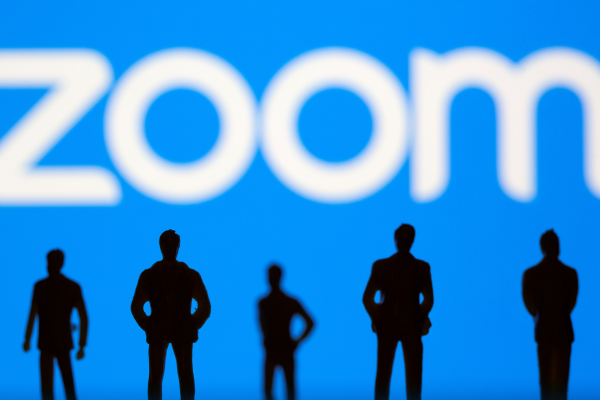Building the workforce of the future begins with AI-powered knowledge management
Sponsored by Bloomfire
Propelled by technological advancements and significant demographic shifts, the dynamics of the global work environment are transforming at an unprecedented pace. In the past two years, the rise of Generative AI tools and continued personnel migration and attrition underscore the critical role of knowledge management (KM) in shaping the workforce of the future.
Implementing generative artificial intelligence (AI) – a standout trend of 2023 that has revolutionised problem-solving, creativity and information management – remains a top priority across boardrooms worldwide. However, as these enterprises grapple with the influx of new technologies, they often face challenges in deploying AI effectively and reaping its full benefits.
In this transformative era, Anthony Rhem, PhD, an expert in knowledge management (KM) and AI, addresses this pivotal moment in his latest research, The Ultimate Guide to Knowledge Management. This comprehensive guide digs into best practices in KM and thoroughly evaluates leading industry platforms, providing invaluable insights into KM’s strategic role in enhancing operational and strategic excellence. The report offers a clear roadmap for leaders aiming to navigate the complexities of digital transformation, as they seek to build a workforce of the future.
The strategic imperative of AI in the workplace
This report peels back the layers of the workforce of the future, revealing how artificial intelligence is set to redefine work environments. Far from just replacing tasks, AI enhances human potential and transforms roles for greater efficiency and creativity. The analysis examines the intricacies of AI integration, spotlighting operational improvements and strategic innovations in decision-making.
Embracing AI across the enterprise will come with challenges. Businesses face significant concerns, including data privacy, the reliability of AI-generated content and the cultural shifts required for AI-driven operations. This research provides a clear guide for overcoming these obstacles, promoting the smooth incorporation of AI into business ecosystems and aiding in the digital transformation process.
Knowledge management platforms are crucial groundwork, setting the stage for businesses to implement AI solutions seamlessly and avoid disruption in existing workflows. Well-organised KM systems can act not just as information stores but as active platforms for AI integration, empowering businesses to harness the full potential of AI technologies effectively. Dr Rhem’s findings further highlight the essential role of KM platforms in fostering AI adoption.
This pivotal advancement in knowledge management sets the stage for a deeper exploration of how AI is being integrated into these systems, reshaping the landscape of organisational knowledge and setting new standards for competitive advantage.
AI in knowledge management
Integrating artificial intelligence into knowledge management systems signifies a transformative leap forward, turning static data repositories into dynamic, intelligent platforms. AI expedites and refines information retrieval by automating tasks such as data tagging and improving search through machine learning and semantic search technologies. This advancement permits employees to concentrate on strategic and innovative activities, optimising the application of AI for informed decision-making and proactive business strategies.
Effective KM practices are pivotal, particularly as businesses confront the challenge of generational knowledge transfer. KM systems ensure that the departure of long-serving employees is manageable, securing the organisation’s legacy and ongoing success. This establishes a continuous flow of knowledge, enabling new generations to build on the solid foundations laid by their predecessors. As AI progresses, its integration within KM frameworks becomes crucial, ensuring businesses retain a competitive edge. This demonstrates the symbiotic relationship between evolving technology and organisational knowledge, underscoring the necessity of robust KM systems in an era of rapid technological change.
The role of ethical AI in knowledge management
Integrating ethical AI within knowledge management practices upholds transparency, accountability and fairness in automated systems. By developing algorithms that are free from bias and prioritising the protection of user privacy, organisations can cultivate a trustworthy and inclusive environment for sharing knowledge.
Ethical AI in knowledge management transcends technical implementation; it necessitates the establishment of clear ethical guidelines and the active education of users in the responsible use of AI tools. This approach ensures that AI functionalities align with core organisational values and ethics, significantly enhancing the integrity and reliability of KM systems. Its practices contribute to sustainable knowledge management strategies that respect user autonomy and foster a culture of mutual respect and continuous learning.
Leading platforms in knowledge management and Generative AI
The fusion of knowledge management and Generative AI has never been more critical, as highlighted by Dr. Rhem in his analysis of the top 10 KM platforms, including industry giants such as Oracle, Salesforce and Bloomfire. This in-depth review is structured around 12 pivotal criteria for evaluating generative AI’s effectiveness and integration within these platforms. The criteria encompass ease of use, search and discovery, AI capabilities, knowledge authoring, reporting and analytics, administrative capabilities, collaboration capabilities, integration capabilities, security and compliance, customer support, technical performance and innovation and return on investment.
This comprehensive analysis takes a deep look into each platform’s unique features, showcasing how they meet the demands of modern AI applications. It highlights their strengths and uncovers potential weaknesses, providing a holistic view that aids decision-makers in selecting the right platform to align with their strategic goals.
Bloomfire leads the charge
The convergence of AI and knowledge management is not just a trend but a strategic imperative for building a workforce for the future. The research in The Ultimate Guide to Knowledge Management provides a blueprint for success and illustrates the transformative power of combining AI with robust KM platforms.
Bloomfire emerges as a frontrunner in this space because of its customer-centric approach. It marries the integration of generative AI features with change management expertise to ensure a successful implementation and uptake of the tools. Bloomfire’s customers report that their knowledge management initiatives have streamlined processes, enhanced decision-making and a culture of innovation and collaboration.
Download the full research report to uncover the in-depth analysis and see why Bloomfire is paving the way for the future of knowledge management.
To schedule a demonstration or request more information about knowledge management best practices, please visit www.bloomfire.com or contact sales@bloomfire.com.
Follow Bloomfire on LinkedIn - www.linkedin.com/company/bloomfire/
About Bloomfire
Bloomfire is a pioneering knowledge-management software platform at the intersection of people, knowledge, process and technology. Since 2011, Bloomfire has partnered with Fortune 500 companies across all industries and sectors to improve knowledge retention, employee onboarding and to drive operational efficiencies.

Dan Stradtman, Bloomfire CMO
As a veteran strategic marketing and customer insights expert, Dan has shaped growth strategies and developed future leaders as an executive at some of the world’s largest companies. Dan is a former enterprise customer of Bloomfire and now leads the company’s marketing and strategy.


Business Reporter Team
Most Viewed
Winston House, 3rd Floor, Units 306-309, 2-4 Dollis Park, London, N3 1HF
23-29 Hendon Lane, London, N3 1RT
020 8349 4363
© 2025, Lyonsdown Limited. Business Reporter® is a registered trademark of Lyonsdown Ltd. VAT registration number: 830519543





